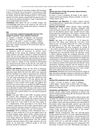 March 2014 in “Hair transplant forum international”
March 2014 in “Hair transplant forum international” Hair transplant surgeons should also focus on their patients' overall health, including regular check-ups and screening for common health issues.
 January 2004 in “Hair transplant forum international”
January 2004 in “Hair transplant forum international” Cell therapy could potentially treat hair loss, but we need lab tests to check if it can create hair follicles.
 177 citations,
July 2004 in “The Journal of Sexual Medicine”
177 citations,
July 2004 in “The Journal of Sexual Medicine” Experts recommend thorough medical, sexual, and psychosocial assessments for women's sexual dysfunctions, and suggest individualized treatment plans with regular check-ups. They also mention potential use of estrogen and androgen therapy, but with caution due to safety concerns.
52 citations,
June 2009 in “Clinical Toxicology” Polonium poisoning is diagnosed by detecting it in urine and feces, and treated with supportive care, infection prevention, and chelation therapy.
9 citations,
October 2017 in “Frontiers in plant science” The peach gene CTG134 helps control the interaction between auxin and ethylene, which could lead to new agricultural chemicals.
 9 citations,
January 2007 in “Gynecological Endocrinology”
9 citations,
January 2007 in “Gynecological Endocrinology” A woman was the first known case to have both polycystic ovary syndrome and autoimmune polyglandular syndrome type 2, suggesting a need to check for both conditions in similar patients.
 7 citations,
December 2021 in “European Respiratory Review”
7 citations,
December 2021 in “European Respiratory Review” The document concludes that diagnosing and treating Interstitial Pneumonia with Autoimmune Features (IPAF) is challenging, needs a multidisciplinary approach, and further research for better diagnostic criteria and treatments. It also emphasizes regular checks for Connective Tissue Disease symptoms in all patients with Interstitial Lung Disease.
 7 citations,
May 2021 in “Applied sciences”
7 citations,
May 2021 in “Applied sciences” Proteins like BSA and keratin can effectively style hair and protect it, offering eco-friendly alternatives to chemical products.
 6 citations,
December 2022 in “International Journal of Molecular Sciences”
6 citations,
December 2022 in “International Journal of Molecular Sciences” Hormone imbalance is linked to Hidradenitis Suppurativa, a skin condition, and treatments like anti-androgenic therapy and metformin can help. It's also suggested to check patients for insulin resistance and Polycystic Ovary Syndrome.
6 citations,
July 2018 in “DOAJ (DOAJ: Directory of Open Access Journals)” A woman had a rare liver tumor causing male-like physical changes, highlighting the need for thorough checks when such symptoms appear.
 5 citations,
February 2019 in “BioMed Research International”
5 citations,
February 2019 in “BioMed Research International” Acne in reproductive-age women may be linked to conditions like PCOS and lifestyle factors, so doctors should check for these when treating acne.
 3 citations,
March 2019 in “Case Reports”
3 citations,
March 2019 in “Case Reports” A man with myotonic dystrophy type 1 had 28 skin cancers, suggesting a link between the disease and skin cancer, emphasizing the need for sun protection and regular skin checks.
 3 citations,
July 2013 in “Journal of Cutaneous Pathology”
3 citations,
July 2013 in “Journal of Cutaneous Pathology” A woman's hair loss, resembling an autoimmune condition, improved after treatment, but requires ongoing checks due to potential serious associations.
 2 citations,
January 2013 in “Hair therapy & transplantation”
2 citations,
January 2013 in “Hair therapy & transplantation” Hair loss may signal metabolic problems and increased risk of heart disease, suggesting people with hair loss should be checked for these issues.
 January 2023 in “Hormone and Metabolic Research”
January 2023 in “Hormone and Metabolic Research” Existing drugs are being repurposed to treat cardiometabolic disorders, which is safer, faster, and cheaper than developing new drugs.
 December 2022 in “Türk biyokimya dergisi”
December 2022 in “Türk biyokimya dergisi” The conclusions are: fecal short-chain fatty acids may help prevent cancer, fiber intake can reduce obesity, weight loss is hard for obese people, low BMI cancer patients are more prone to chemotherapy side effects, intermittent fasting benefits gut health, cherry laurel has health benefits in rats, certain gene variations can increase stress in hair loss patients, fecal acids can affect blood sugar levels, cold agglutinin can affect blood test results in autoimmune patients, and people with Crohn's disease have higher levels of a certain chemical in their blood.
 August 2022 in “IARS international research journal”
August 2022 in “IARS international research journal” The document concludes that drug repurposing, which is reusing known medicines for new illnesses, can provide faster, cheaper treatment options for various serious diseases, including cancer, COVID-19, and rare diseases.
 November 2021 in “Research Square (Research Square)”
November 2021 in “Research Square (Research Square)” Older men and those with outdoor jobs are at higher risk for skin cancer; early full-body skin checks are recommended for early detection.
 May 2020 in “Hair transplant forum international”
May 2020 in “Hair transplant forum international” The study found that hair transplant surgery can be used to treat a rare condition that causes a band of hair loss, but surgeons should check for skull abnormalities first.
 September 2009 in “European Urology Supplements”
September 2009 in “European Urology Supplements” Cone beam computed tomography can allow for smaller safety margins around the target area in prostate cancer radiation treatment if used for ongoing treatment checks.
 192 citations,
March 2017 in “Cell host & microbe”
192 citations,
March 2017 in “Cell host & microbe” Hair follicle development and microbes help regulatory T cells gather in newborn skin.
 100 citations,
November 1996 in “Molecular Medicine Today”
100 citations,
November 1996 in “Molecular Medicine Today” Growth factors and cytokines are important for hair growth and could potentially treat hair loss, but more research is needed to overcome challenges before they can be used in treatments.
 92 citations,
June 2017 in “Journal of Plastic Reconstructive and Aesthetic Surgery”
92 citations,
June 2017 in “Journal of Plastic Reconstructive and Aesthetic Surgery” Microneedling is a safe and effective treatment for various skin conditions, often preferred for its fewer side effects and shorter recovery time.
86 citations,
April 2009 in “Journal of anatomy” Hard skin features like scales, feathers, and hair evolved through specific protein changes in different animal groups.
 84 citations,
April 2005 in “Dermatologic Clinics”
84 citations,
April 2005 in “Dermatologic Clinics” Treatments for melanin disorders exist, but more effective options needed.
 73 citations,
April 2019 in “Experimental Dermatology”
73 citations,
April 2019 in “Experimental Dermatology” The scalp's microorganisms significantly affect hair health and disease.
 59 citations,
March 2020 in “Journal of Biomedical Science”
59 citations,
March 2020 in “Journal of Biomedical Science” Understanding how hair follicle stem cells work can help find new ways to prevent hair loss and promote hair growth.
 58 citations,
January 2013 in “The Journal of Clinical Endocrinology and Metabolism”
58 citations,
January 2013 in “The Journal of Clinical Endocrinology and Metabolism” Obese women with PCOS show a male-like pattern in certain fat tissue gene expressions.
 54 citations,
August 2019 in “Bioscience trends”
54 citations,
August 2019 in “Bioscience trends” Stem cells help repair tissue mainly by releasing beneficial substances, not by replacing damaged cells.
53 citations,
July 2016 in “Cosmetics” Future hair cosmetics will be safer and more effective.
























